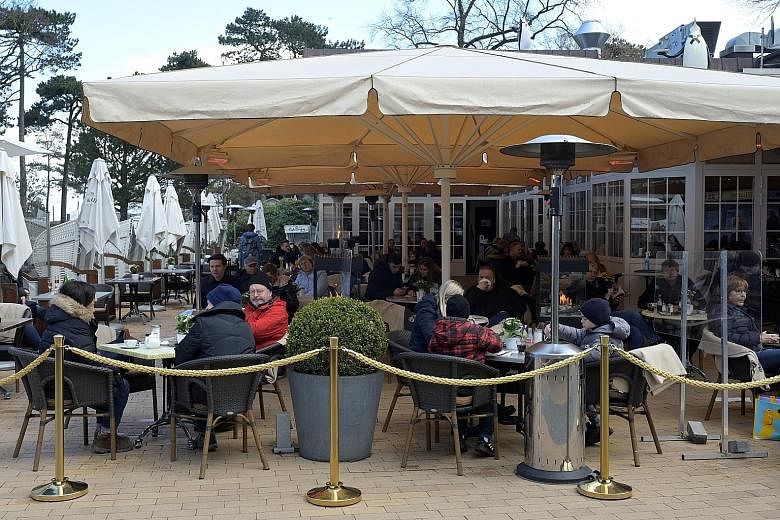GENEVA • Confusion and complacency in addressing Covid-19 means the pandemic is a long way from over, but it can be brought under control in months with proven public health measures, World Health Organisation director-general Tedros Adhanom Ghebreyesus has said.
So far, about 780 million vaccines have been administered globally, but measures including wearing masks and maintaining physical distancing must be applied to reverse the trajectory of the pandemic, he told a news briefing on Monday.
"We, too, want to see societies and economies reopening, and travel and trade resuming," Dr Tedros said. "But right now, intensive care units in many countries are overflowing and people are dying - and it is totally avoidable."
He added: "The Covid-19 pandemic is a long way from over. But we have many reasons for optimism. The decline in cases and deaths during the first two months of the year shows that this virus and its variants can be stopped."
Transmission was being driven by "confusion, complacency and inconsistency in public health measures", he said.
Dr Maria van Kerkhove, the WHO team leader on Covid-19, added: "We are at a critical point in the pandemic now, the trajectory of this pandemic is growing for the seventh week in a row."
Noting that there had been a 9 per cent rise in cases last week, the seventh consecutive week of increases, and a 5 per cent rise in deaths, she said: "If you look at the epi (epidemic) curve and the trajectory of the pandemic right now, it is growing exponentially."
Dr Tedros said that in some countries, despite continuing transmission, restaurants and nightclubs were full and markets were open and crowded, with few people taking precautions.
"Some people appear to be taking the approach that if they are relatively young, it doesn't matter if they get Covid-19," he said.
Chancellor Angela Merkel appeared to share Dr Tedros' concerns, saying yesterday that her decision to seek temporary powers from Parliament to enforce coronavirus lockdowns in areas with high infection rates was necessary for Germany to curb a third wave of the pandemic.
With infections rising rapidly in some areas, Dr Merkel's government is pressing for a change to the Infection Protection Act to enable the federal authorities to enforce restrictions under certain scenarios.
"For the situation to improve, we need to stop the third wave, break it and reverse it, and the measures to fight the pandemic need to be stricter," Dr Merkel told a news conference after the Cabinet approved the draft law.
According to the draft, a mandatory nationwide "emergency brake" will be introduced if the number of new infections per 100,000 residents in a district or city exceeds 100 for three consecutive days within a week.
The brake would include curfews between 9pm and 5am, as well as limiting private gatherings to one household plus one other person.
All but essential shops will be required to close, while the opening of cultural and recreational facilities such as theatres, museums and zoos will be prohibited.
Schools will have to return to distance learning if the virus incidence rises above 200 per 100,000 residents for three consecutive days.
The Bill must now be approved by the Lower and Upper Houses of Parliament. The change to the law will apply until June 30.
Germany is grappling with a more transmissible variant of Covid-19 five months before a national election in which Dr Merkel's conservatives are forecast to suffer major losses.
She and several regional leaders have called for tougher curbs to prevent the health system from becoming overwhelmed, after some state leaders refused to impose agreed stricter measures even as new infections rose dramatically.
Dr Merkel said the tougher measures, combined with a vaccination campaign that is slowly gaining steam after a sluggish start, will slowly lift Germany - Europe's largest economy and most populous country - out of lockdown.
"One thing is helping us enormously: As we prepare for those restrictions, the vaccination campaign is in progress and building momentum every day," said the German leader.
The number of confirmed coronavirus cases in Germany rose by 10,810 and the death toll increased by 294 on Monday, data from the Robert Koch Institute showed.
The seven-day virus incidence per 100,000 rose to 140.9 from 136.4.
REUTERS

